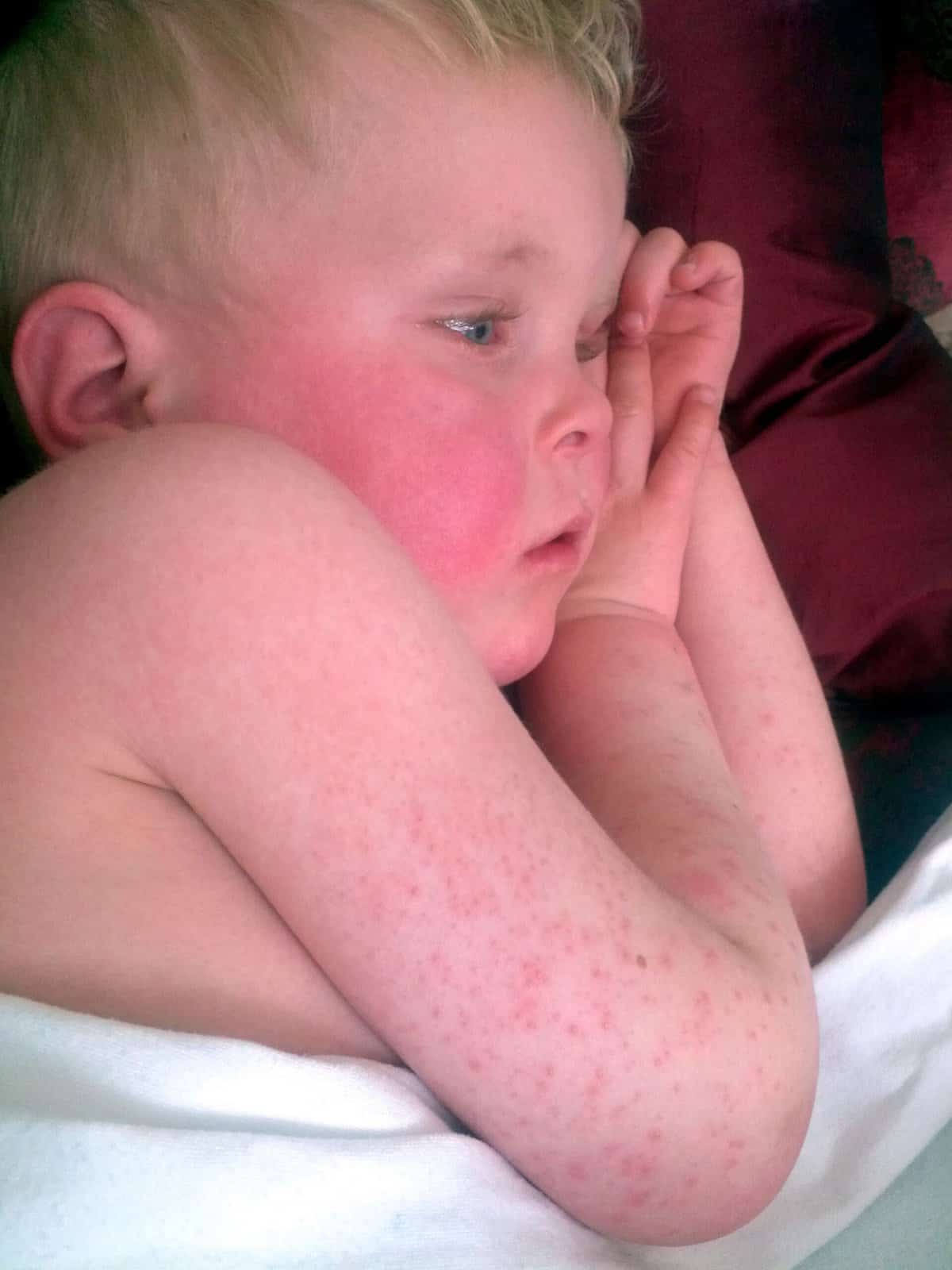Understanding Glandular Fever in Newborns: A Parental Guide
Welcome, concerned parents and caregivers! In this essential guide, we’ll walk you through the ins and outs of glandular fever, especially as it pertains to your precious newborns. Often known as infectious mononucleosis, or “mono”, glandular fever is something many of us may encounter, but when our smallest family members are potentially at risk, understanding and vigilance become paramount. So, let’s dive into what you need to know!
What Is Glandular Fever?
Glandular fever is an infectious disease, most commonly caused by the Epstein-Barr virus (EBV). It’s often transmitted through saliva – earning it the nickname “the kissing disease” – although it can also spread through other means, such as sharing drinks or utensils. It’s important to recognize that while it’s more common in adolescents and young adults, babies can also become infected.
Can Newborns Get Glandular Fever?
Yes, newborns can contract glandular fever, but it’s relatively rare. The transmission of EBV to your baby can happen during childbirth if the mother is infected or through close contact afterward. However, in many cases, mothers pass on antibodies to their children, which help protect them from the virus during the first few months of life.
Symptoms to Look Out For in Newborns
Identifying glandular fever in newborns can be somewhat challenging as they cannot verbalize how they feel. Nevertheless, there are symptoms you might notice:
- Fever: An unexplained high temperature is often one of the first signs.
- Lethargy: Your baby might seem unusually tired or sluggish.
- Poor feeding: They may show less interest in feeding or have trouble staying latched on.
- Swollen glands: You could notice swelling in the baby’s neck glands.
If you observe any of these symptoms, it’s crucial to contact your pediatrician immediately.
Diagnosis and Treatment of Glandular Fever in Newborns
Diagnosing glandular fever involves a physical examination and possibly some blood tests to detect EBV antibodies or an abnormal white blood cell count. Treatment generally focuses on relieving symptoms, as the condition is often self-limiting. Rest and adequate hydration are essential, and in some cases, pain relief medication may be prescribed to alleviate discomfort. Always follow your pediatrician’s recommendations when administering any medication.
Protecting Your Newborn from Glandular Fever
Prevention is always better than cure. Some steps to help protect your baby might include:
- Practicing good hygiene, such as regular hand washing and avoiding the sharing of utensils and cups
- Avoiding contact with sick individuals, especially if a viral infection is suspected
- Ensuring anyone handling your baby has clean hands and is not showing signs of illness
Keep in mind that while glandular fever is not as contagious as other infections like the common cold or flu, taking these precautions can significantly reduce the risk of your newborn contracting the virus.
Glandular fever is generally a mild illness in newborns, but it requires careful attention and management. As we continue to explore this topic, remember to always consult your healthcare provider with any concerns about your baby’s health. Our goal is to empower you with knowledge, so you can ensure the best care for your little bundle of joy. Stay tuned for more detailed insights!
Rest easy knowing that by being informed and proactive, you’re doing everything in your power to keep your newborn healthy and protected. Let’s move on to explore more about how glandular fever may impact your family and the best practices to navigate this challenge together.

Five Key Things Parents Should Know in Preparing for Glandular Fever and Newborns
As parents, you always want to be prepared, especially when it comes to the health of your newborn. Here are five crucial things you should know about glandular fever and your little one:
- Immunity Transfer: It’s reassuring to know that if you have had glandular fever in the past, you’re likely to have developed antibodies against the Epstein-Barr virus. Many of these antibodies are passed from mother to baby during pregnancy, offering some level of protection during the initial months of the baby’s life.
- Neonatal Screening: If there’s a high risk of EBV transmission or a history of glandular fever in the family, talk to your healthcare provider about neonatal screenings. These checks can ensure early detection and monitoring of any potential infection.
- Breastfeeding Benefits: Breastfeeding has been shown to provide numerous health benefits, including the transfer of immune factors that can help protect your newborn from infections like EBV. Continue to breastfeed if possible, but remember to maintain hygiene to prevent the spread of the virus.
- Understanding Symptoms: Newborns’ immune systems are not as developed as older children’s or adults’, which means their symptoms can be less specific. Know that symptoms like persistent crying, changes in feeding patterns, or a decrease in activity levels can signal an underlying problem.
- Virus Lifespan: EBV can remain in the saliva for months after an infection has resolved. Be mindful that family members who have recently had glandular fever could still transmit the virus to your newborn even if they’re no longer showing symptoms.
Long-term Considerations for Newborns with Glandular Fever
While the acute phase of glandular fever is usually short-lived, the virus can have some long-term effects on your baby’s health. EBV has been associated with chronic conditions, so it’s crucial to maintain ongoing communication with your healthcare team to monitor any potential developments.
Glandular fever in a newborn might also temporarily affect the immune system, increasing susceptibility to other infections. Be extra vigilant with your baby’s health in the weeks and months following an EBV infection, and don’t hesitate to seek medical advice if anything seems amiss.
When to Seek Medical Advice
If you suspect that your newborn might have glandular fever, don’t wait to seek medical advice. A fever in a newborn should always be evaluated by a healthcare professional, especially if it’s accompanied by any other signs or symptoms of illness.
Newborns who contract glandular fever generally recover without serious long-term problems, but early treatment and supportive care are critical. Be sure to look out for signs of dehydration and to talk to your pediatrician about pain-relief options if your baby seems uncomfortable or has difficulty feeding due to swollen glands.
With careful attention to symptoms, adherence to preventive measures, and maintaining open lines of communication with your healthcare providers, you’re equipped to deal with glandular fever should it affect your newborn. Understanding and responding appropriately to the potential challenges posed by EBV will help ensure that your new addition stays healthy and happy.
Becoming a parent comes with many joys and responsibilities, and attaining knowledge about conditions like glandular fever is a significant step towards proactive parenting. We hope this guide has been enlightening and assists you in navigating this aspect of infant health with confidence.
To all the fantastic parents out there, keep nurturing your newborn’s health and well-being with the same love and care you’ve always shown. With solid knowledge and preparedness, you’re already providing excellent protection against glandular fever and other potential newborn health issues.
See more great Things to Do with Kids in New Zealand here. For more information see here
Disclaimer
The articles available via our website provide general information only and we strongly urge readers to exercise caution and conduct their own thorough research and fact-checking. The information presented should not be taken as absolute truth, and, to the maximum extent permitted by law, we will not be held liable for any inaccuracies or errors in the content. It is essential for individuals to independently verify and validate the information before making any decisions or taking any actions based on the articles.




